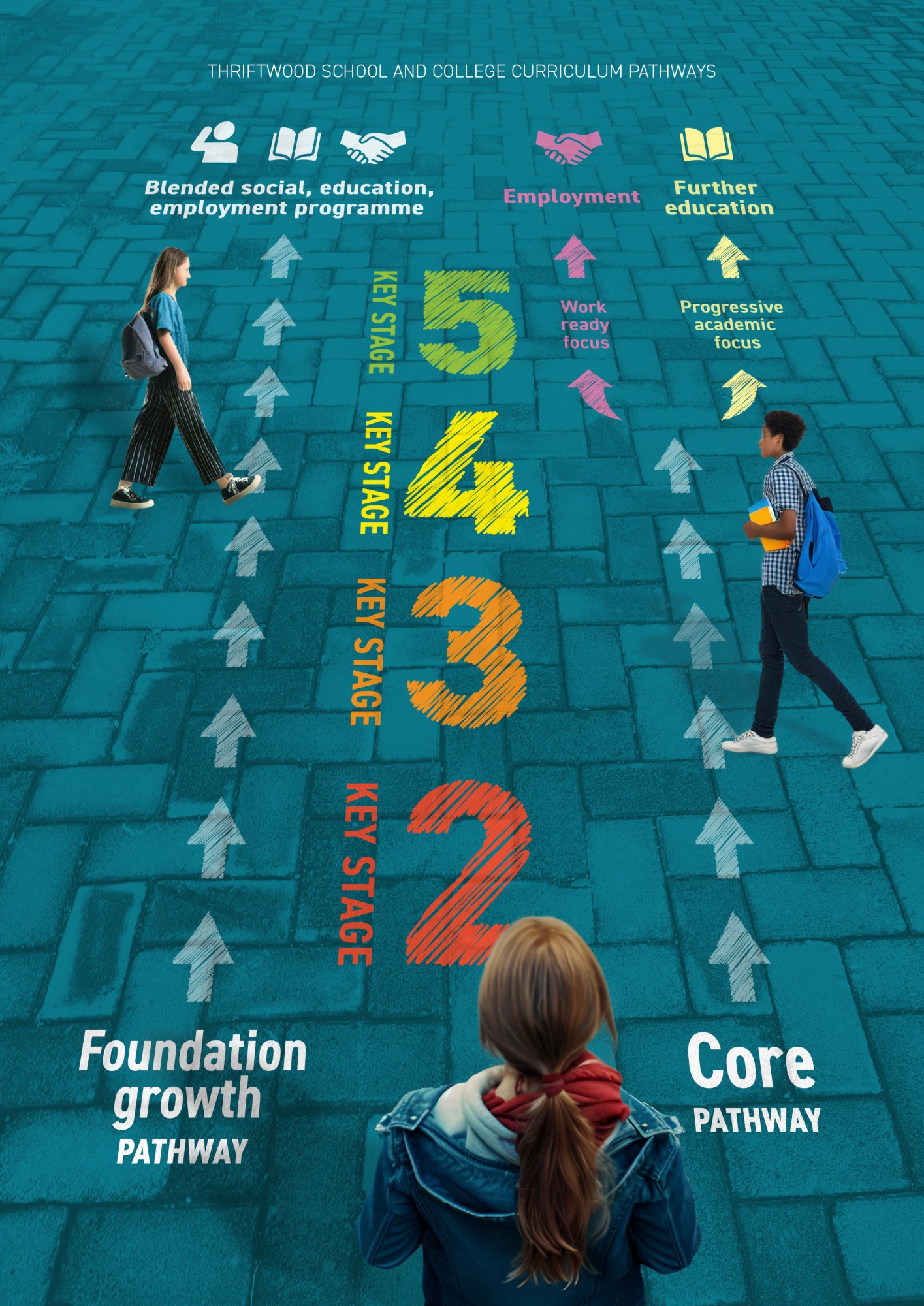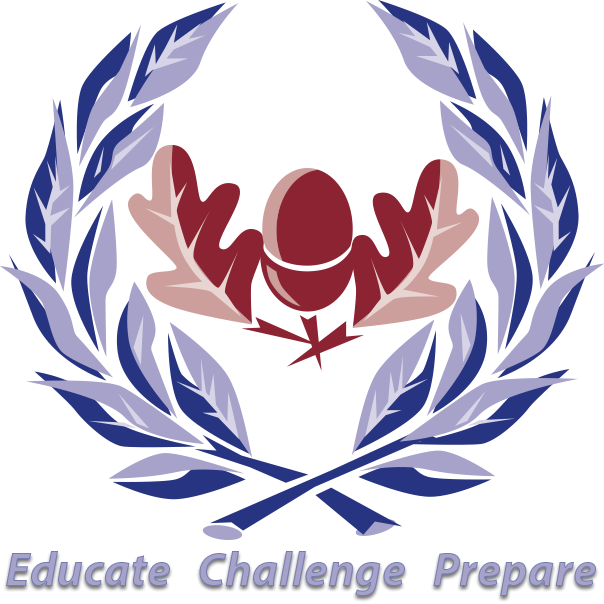Our Curriculum
The Curriculum
Thriftwood College aims to provide young people with moderate learning needs, an experience of learning which is both challenging and engaging. The environment is age appropriate and the approach is highly Person Centred.
The College caters for students between 14 – 19 years of age and is organised into two departments: Key Stage 4, 14-16 years and Key Stage 5, 16-19 years.
The Curriculum across the college is designed to facilitate the best possible preparation for adulthood. It aims to respond to national guidance, including the Code of Practice and the governments’ objectives, to ensure that learners with a range of needs are provided with appropriate opportunities to become both as independent as possible and to develop skills that make them employable in the future.
Here is our KS2-KS5 Complete Curriculum Overview.
Complete Curriculum Overview
Fundamentals for the Future (FFF) - We have developed a Curriculum Framework called "Fundamentals for the Future" upon which all our subject areas are built. This framework consists of all the key skills we believe are essential for our pupils to lead an independent, healthy and purposeful life.
The framework is set out under the Preparation for Adulthood titles and links to the areas within Education Health Care Plans (EHCP). This framework is taught both discreetly and also within/through other subject areas. Pupil progress within the framework is tracked.

Key Stage 4 - Years 10 and 11
Students joining us in key stage 4, usually from Thriftwood School, will follow a more ‘school based’ programme and will have access to a range of subjects; including the core subjects, the arts, physical education, PSHCEe, and work related learning. Each KS4 tutor group will be a mix of Year 10 and 11 students. The thinking behind this is that it will help target student needs more effectively. Students will be ability-grouped for English and mathematics and will work towards accreditation at a functional level over a two year period. In working towards independence, students will be encouraged to engage with travel training, in-order-to start using public transport both at college and at home. The aim of the key stage 4 curriculum is to determine a young person’s next stage of learning, whether academic in nature or based on vocational learning.
Year 10 11 College Programme 24 25
KS4 Foundational Growth Pathway
The following criteria are used to determine the selection of the Foundation Growth Pathway for a learner:
- Cognitive ability markedly below the average level for the cohort at Thriftwood
- Limited independence skills, alongside a substantial requirement for social skills support
- Complex medical needs necessitating a high level of care and assistance
- Behaviours for learning that impede the learner’s ability to access the curriculum effectively
Some learners may present with needs across all of these areas, while others may demonstrate challenges in only one.
Learners may move out of or into this pathway throughout their time at Thriftwood dependent upon their individual needs and progress made.
Their curriculum is meticulously designed to foster personal growth and gradually decrease reliance on adult assistance. Emphasis is placed on nurturing their abilities to engage with the world more independently, with a strong focus on enhancing life skills, self-care, and decision-making capabilities.
Key Stage 5 – Years 12, 13
At Key Stage 5, students will continue to receive high quality English and mathematics teaching in ability-groups. Those, who are able, will be aiming for qualifications in the core subjects up to Level 2 which will enable them to access mainstream college courses when they leave Thriftwood. However, the core purpose of our post-16 programme is to develop vocational skills and the skills required for gainful employment. This will include Options in their chosen vocational area and the opportunity to experience aspects of the world of work. Most students stay in the post-16 provision up to the age of 18.
Year 12 13 College Programme 24 25
KS5 Foundational Growth Pathway
Learners who join the Foundational Growth Pathway in Year 12 or 13 will receive a curriculum that is specifically geared to their learning needs and develops their literacy and numeracy skills.
The primary outcome of this curriculum is to give the pupils the life skills they need to function as independently as is possible in the future. Each subject focuses on teaching both topics and skills that can be transferred into a real-life context.
Year 14
If leadership feel it would be beneficial for a student to stay for a further year then they will be invited to take up this opportunity. This is a non-accredited route, it's purpose is to help students develop greater resilience and independence before moving on. However, there is a very limited number of Year 14 spaces and this will only apply to a few students. Depending on the student numbers throughout the rest of the college there may be years that we do not have the capacity to run a Year 14 programme.
Moving into Adulthood
The journey through adolescence can be a challenging one and parents find that their children change significantly as they mature and begin to develop their own points of view. The programme at College aims to ensure that students have a voice and develop a sense of autonomy in their own lives. Students will be encouraged to attend and share their thoughts, wishes and aspirations at any reviews of the EHCP and events where progress is shared.
Accreditation
The College has invested in working with nationally recognised organisations to provide students with meaningful accreditation opportunities. The awarding bodies that we are currently registered with are AQA and NCFE. We work towards Entry Level, Functional Skills Level 1 and 2 in both English and Mathematics, as well as GCSE English Language and Mathematics.
Other accreditations that we offer include Digital Functional Skills at Entry Level 3, Duke of Edinburgh Bronze Award and Sports Leaders Award (Level 1).
We have a robust careers programme that prepares our learners for the world of work. Throughout their time at College learners will experience:
- Two-week work experience placement in year 12 (Core Pathway)
- Supported work experience days/projects (FGP Pathway)
- Volunteering
- Industry visits
- Experience of horticulture/outdoor pursuits
- Participation in Work Related Learning
- Developing relationships with businesses, locally and nationally
- Participation in leisure activities both at College and at home
- Working with charities
- Keeping fit and well, participation in meaningful leisure activities
